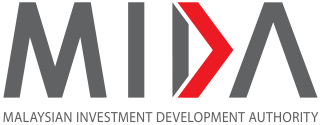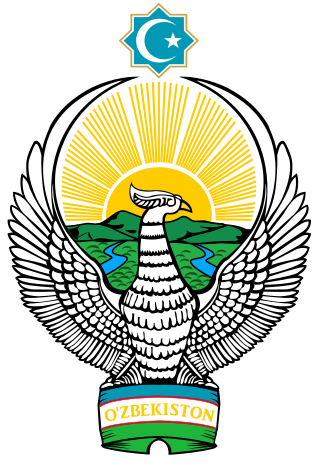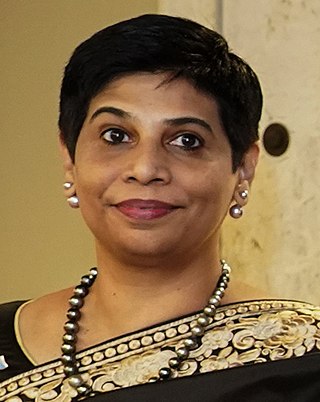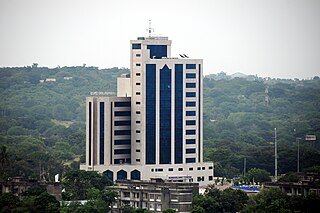Related Research Articles
Telecommunications in Fiji include radio, television, fixed and mobile telephones, and the Internet.

The Federal Communications Commission (FCC) is an independent agency of the United States government that regulates communications by radio, television, wire, satellite, and cable across the United States. The FCC maintains jurisdiction over the areas of broadband access, fair competition, radio frequency use, media responsibility, public safety, and homeland security.
Mass media in India consists of several different means of communication: television, radio, cinema, newspapers, magazines, and Internet-based websites/portals. Indian media was active since the late 18th century. The print media started in India as early as 1780. Radio broadcasting began in 1927. Today much of the media is controlled by large, corporations, which reap revenue from advertising, subscriptions, and sale of copyrighted material.

The Office of Communications, commonly known as Ofcom, is the government-approved regulatory and competition authority for the broadcasting, telecommunications and postal industries of the United Kingdom.
The Australian Communications and Media Authority (ACMA) is an Australian government statutory authority within the Communications portfolio. ACMA was formed on 1 July 2005 with the merger of the Australian Broadcasting Authority and the Australian Communications Authority.

Dr. Ganeshwar Chand, better known as Ganesh Chand, is a Fijian academic and former politician of Indian descent. He was Vice-Chancellor of Solomon Islands National University from 2019 to 2022. He was a founder of the University of Fiji and serves as a trustee of the Fiji Institute of Applied Studies and as editor of Fijian Studies: A Journal of Contemporary Fiji and the Global Girmit Institute. He was Vice-Chancellor of the Fiji National University from February 2010 until he left his post after a disagreement with the University Council in December 2014.

The Malaysian Investment Development Authority, abbreviated MIDA, previously known as Malaysian Industrial Development Authority is the government's principal agency to oversee and drive investment into the manufacturing and services sectors in Malaysia. Starting operations in 1967, MIDA was given the mandate to promote investments in the manufacturing and services sectors; and to advise the Ministry of International Trade and Industry (MITI) on industry matters including the formulation of related policies.

The Independent Communications Authority of South Africa (ICASA) is an independent regulatory body of the South African government, established in 2000 by the ICASA Act to regulate both the telecommunications and broadcasting sectors in the public interest.

The president of the Republic of Uzbekistan is the head of state and executive authority in Uzbekistan. The office of President was established in 1991, replacing the position of Chairperson of the Presidium of the Supreme Soviet of the Uzbek SSR, which had existed since 1925. The president is directly elected for a term of seven years, by citizens of Uzbekistan who have reached 18 years of age.

The Department of Trade and Industry is the executive department of the Philippine government responsible for the advancement, promotion, governance, regulation, management and growth of industry and trade.

Nazhat Shameem Khan is a Fijian diplomat and former judge who served as the Permanent Representative of Fiji to the United Nations from 2014 to 2022. She was also the President of the United Nations Human Rights Council in 2021. She served as a judge of the High Court of Fiji from 1999 to 2009, the first woman to do so. She is currently a Deputy Prosecutor for the International Criminal Court.

The Media Development Authority was a statutory board of the Singapore Government, under the Ministry of Communications and Information (MCI).
In communication, media are the outlets or tools used to store and deliver content; semantic information or subject matter of which the media contains. The term generally refers to components of the mass media communications industry, such as print media, publishing, the news media, photography, cinema, broadcasting, digital media, and advertising.
The Consumer Council of Fiji is a statutory consumer agency that promotes and lobbies for consumer rights and interests in the Fiji Islands.

The Tanzania Communications Regulatory Authority (TCRA), established by the TCRA Act No. 12 of 2003, is an independent Authority for the postal, broadcasting and electronic communications industries in the United Republic of Tanzania based in Mikocheni ward of Kinondoni District of Dar es Salaam Region. It merged the former Tanzania Communications Commission and the Tanzania Broadcasting Commission. The TCRA is accountable to the Communications and Technology Ministry. The Information Communication and Technology (ICT) sector reform in Tanzania is notable in that development was influenced by regional, political (national) and technological factors. Tanzania is one of the few African countries to liberalise the communications sector whereby the Converged Licensing Framework (CLF) is used as a key strategy, in terms of the Tanzania Communications Regulations. Since inception in 2003, the TCRA has issued a number of regulations to administer the sector, but still faces a number of challenges such as the roll-out of services to under-serviced rural areas.

In Russia, internet censorship is enforced on the basis of several laws and through several mechanisms. Since 2012, Russia maintains a centralized internet blacklist maintained by the Federal Service for Supervision of Communications, Information Technology and Mass Media (Roskomnadzor).
Mass media regulations are a form of media policy with rules enforced by the jurisdiction of law. Guidelines for media use differ across the world. This regulation, via law, rules or procedures, can have various goals, for example intervention to protect a stated "public interest", or encouraging competition and an effective media market, or establishing common technical standards.

The Broadcasting Services Act 1992(Cth) is an Act of the Parliament of Australia, which broadly covers issues relating to content regulation and media ownership in Australia. The law stipulates what is political advertising and the specific conditions which must be met before they are authorised for publication.
In the Philippines, censorship involves the control of certain information.

The Media Industry Development Act 2010 (MIDA) was a law of Fiji which regulates the media. The law was promulgated by the military regime which seized power in the 2006 Fijian coup d'état, in the wake of the 2009 Fijian constitutional crisis, and required media organisations to be 90% Fijian-owned and forbade news reporting "against the national interest or public order", with repressive fines and jail terms for breaches. It established the Media Industry Development Authority of Fiji to enforce the military regime's standards. Originally passed as a decree, it was later renamed an Act.
References
- ↑ "Media Industry Development Authority of Fiji - Yellow Pages Fiji". www.yellowpages.com.fj. Archived from the original on 11 October 2022. Retrieved 10 October 2022.
- ↑ "Commencement of the Media Industry Development Decree 2010". The Fijian Government. 28 June 2010. Archived from the original on 5 June 2019. Retrieved 10 October 2022.
- ↑ "Media freedom concern". FijiTimes. 24 August 2018. Archived from the original on 25 August 2018. Retrieved 10 October 2022.
- ↑ "Engagement through the media is essential". FijiTimes. 18 April 2015. Archived from the original on 11 October 2022. Retrieved 10 October 2022.
- ↑ "Media freedom". FijiTimes. 30 April 2017. Archived from the original on 11 October 2022. Retrieved 10 October 2022.
- ↑ "Proposal To Remove Fiji Media Industry Development Authority (MIDA) Proves Futile In Parliament". Fiji Sun. 20 June 2019. Archived from the original on 24 October 2021. Retrieved 10 October 2022.
- ↑ "Review media Act, says FMA". FijiTimes. 10 May 2022. Archived from the original on 5 July 2022. Retrieved 11 October 2022.
